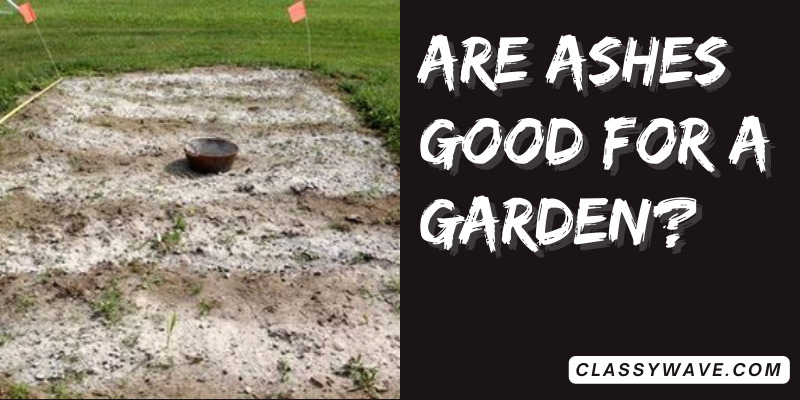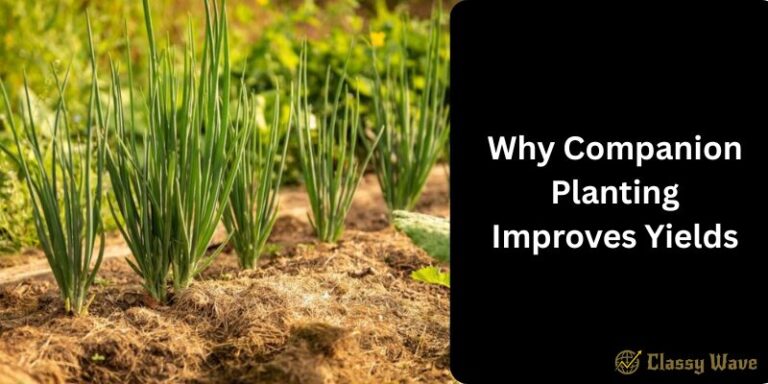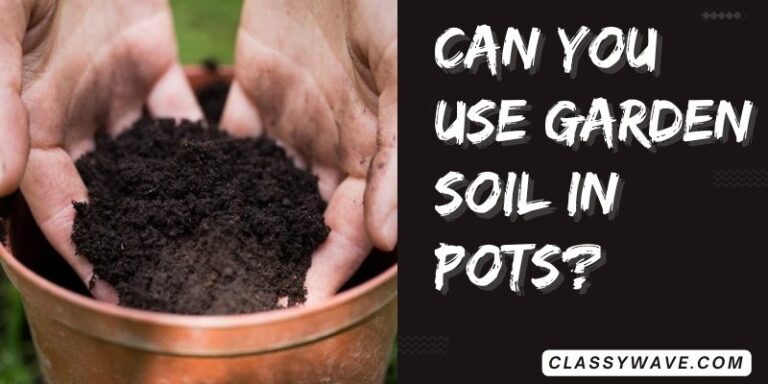Are ashes good for a garden? The Truth
Embark on a journey through the diverse realms of gardening with ashes, as encapsulated by these five insightful headings. From weed control to microbial dynamics, stress alleviation, seasonal considerations, and aesthetic enhancements, each topic offers a nuanced perspective on harnessing the potential of ashes for a flourishing and visually appealing garden.
Benefits of Using Ashes in the Garden
Discover the myriad advantages of incorporating ashes into your garden. From enriching soil fertility to enhancing plant growth, ashes contribute essential nutrients like potassium and calcium. Learn how this natural resource promotes a healthier garden ecosystem and aids in pest control. Uncover the sustainable and cost-effective benefits of utilizing ashes to boost your garden’s vitality and productivity.
How to Safely Incorporate Ashes into Your Garden
Navigate the proper techniques and precautions when integrating ashes into your garden. Explore step-by-step guidelines on safely applying ashes to avoid potential harm to plants or soil. Learn about recommended quantities, application methods, and essential safety measures. Understand the balance needed to optimize the benefits of ashes while minimizing adverse effects on your garden’s health. Ensure seamless and risk-free incorporation of ashes into your gardening practices with these expert insights.
Types of Ashes Suitable for Garden Use
Delve into the diverse sources of ashes suitable for enhancing your garden. Identify different types of ashes, including wood ash, charcoal ash, and more, each offering unique benefits. Gain insights into the chemical composition and nutrient content of various ashes, enabling you to make informed choices based on your garden’s specific needs. Explore the specific advantages each type of ash brings to your soil and plants, empowering you to make tailored decisions for optimal garden health.
Ashes as a Natural Fertilizer for Plants
Uncover the natural fertilizer potential of ashes and their impact on plant nutrition. Explore how ashes contribute essential minerals like phosphorus, potassium, and trace elements crucial for plant development. Understand the role of ashes in promoting healthier root systems and increased nutrient absorption. Discover the sustainable and eco-friendly aspects of using ashes as a fertilizer alternative, fostering a greener and more vibrant garden environment.
Considerations and Precautions when Using Ashes in Gardens
Navigate the potential challenges and precautions associated with using ashes in your garden. Explore key considerations such as soil type, plant preferences, and climate conditions that may influence the effectiveness of ashes. Gain insights into avoiding common pitfalls, such as excessive application or inappropriate ash types. Learn about potential risks to plants, soil, and water quality, ensuring that your utilization of ashes aligns with best practices for sustainable and responsible gardening.
Improving Soil pH with Ashes
Explore the role of ashes in soil pH management and how it impacts your garden’s overall health. Understand the alkaline properties of ashes and their ability to counteract soil acidity. Gain practical insights into using ashes to adjust pH levels, fostering an environment conducive to optimal plant growth. Learn about the specific plants that benefit from soil pH adjustments and how to maintain a balanced pH for a thriving and diverse garden ecosystem.
Ashes from Different Sources
Evaluate the suitability of ashes from various sources and determine the best options for your garden. Explore the unique qualities of ashes derived from wood, charcoal, and other materials, considering their nutrient content and potential impacts on soil health. Compare the advantages and disadvantages of different ash sources, enabling you to make informed decisions tailored to your garden’s specific requirements. Uncover the nuances of selecting the right ashes to optimize your gardening outcomes.
Creative Ways to Reuse Ashes in Your Garden
Discover innovative and resourceful ways to repurpose ashes in your garden beyond traditional applications. Explore creative ideas for incorporating ashes into DIY projects, composting, or pest control. Learn how ashes can serve multiple functions in your garden, from crafting homemade fertilizers to enhancing mulch. Unlock the potential of ashes as a versatile and sustainable resource, adding practical and aesthetic value to your garden spaces.
Common Mistakes to Avoid When Using Ashes in Gardening
Identify and sidestep common pitfalls associated with using ashes in gardening practices. Learn from the experiences of others to avoid issues such as overapplication, improper ash types, or neglecting essential precautions. Explore the potential consequences of common mistakes and their impact on soil health, plant growth, and overall garden vitality. Arm yourself with the knowledge to ensure a successful and problem-free integration of ashes into your gardening routine, maximizing the benefits while minimizing potential setbacks.
Environmental Impact of Using Ashes in Gardens
Examine the broader ecological implications of using ashes in garden practices. Understand how the responsible application of ashes can contribute to sustainable gardening and soil management. Explore the potential environmental benefits, such as reduced reliance on chemical fertilizers and improved water conservation. Gain insights into the overall ecological footprint of using ashes in gardens, empowering you to make environmentally conscious choices that promote a healthier and more resilient natural ecosystem.
The Role of Ashes in Weed Control and Management
Uncover the lesser-known benefits of ashes as a natural weed control method. Learn how ashes can hinder weed germination and growth, providing an eco-friendly alternative to chemical herbicides. Explore how ashes disrupt weed development in your garden, contributing to a weed-free environment. Discover practical tips for effectively utilizing ashes for weed management while enhancing soil health and fostering a garden that is aesthetically pleasing and resilient against unwanted vegetation.
Ashes and Their Influence on Microbial Activity in Soil
Delve into the intricate relationship between ashes and soil microbes, understanding how ashes can impact the soil’s microbial community. Explore the dynamic interactions that influence nutrient cycling, organic matter decomposition, and overall soil fertility. Gain insights into the positive and negative effects of ashes on microbial activity, enabling you to make informed decisions about incorporating ashes into your garden. Uncover the nuanced balance required to optimize microbial health and foster a thriving soil ecosystem that supports plant growth and long-term sustainability.
Enhancing Plant Resilience
Explore the stress-alleviating properties of ashes and their role in enhancing plant resilience. Understand how ashes can mitigate environmental stressors, such as drought or nutrient deficiencies, contributing to healthier and more robust plants. Learn about the specific mechanisms through which ashes support plant stress tolerance and adaptability. Discover practical strategies for incorporating ashes to bolster your garden’s resilience, ensuring your plants thrive even in challenging conditions. Uncover the potential of ashes as a natural solution for cultivating hardier and more resistant plant species.
Seasonal Considerations for Using Ashes in Your Garden
Navigate the seasonal nuances of using ashes in your garden, understanding how weather and temperature variations influence their effectiveness. Explore the optimal times to apply ashes for maximum benefit, considering factors like soil moisture, temperature, and plant growth cycles. Learn about seasonal challenges and opportunities associated with using ashes, ensuring that your gardening practices align with the dynamic nature of the changing seasons. Gain insights into adapting your approach based on seasonal considerations, fostering a garden that flourishes year-round.
Exploring the Aesthetic Benefits of Ashes in Garden Design
Move beyond the practical applications and discover how ashes can contribute to the aesthetic appeal of your garden. Explore creative ways to incorporate ashes into garden design, from enhancing pathways to creating unique patterns. Learn about the visual impact of ashes on plant coloration and overall garden aesthetics. Discover how thoughtful integration of ashes can add an artistic dimension to your outdoor space, transforming your garden into a visually striking and harmonious environment combining form and function.
Conclusion
In conclusion, the diverse applications of ashes in gardening present a rich tapestry of benefits, from practical weed control to enhancing soil microbial activity and fostering plant resilience. Considerations like seasonality and aesthetic design further highlight the versatility of ashes in nurturing a thriving garden. With insights into the do’s and don’ts, gardeners can make informed choices, leveraging ashes as a sustainable resource to promote environmental health, resilience, and the aesthetic allure of their outdoor spaces.
FAQs
Question: Can ashes be used as a substitute for chemical fertilizers in the garden?
Answer: Yes, ashes offer natural fertilization with potassium and calcium, reducing the need for some chemical fertilizers.
Question: Are wood ashes suitable for all types of plants?
Answer: While rich in nutrients, wood ashes are best for alkaline-loving plants like tomatoes and broccoli.
Question: How often should I apply ashes to my garden?
Answer: Apply ashes sparingly, once or twice a year, to avoid overloading the soil with nutrients.
Question: Can ashes harm plants or soil if not used correctly?
Answer: Yes, improper use, such as excessive application, can harm plants and alter soil pH adversely.
Question: Are there safety precautions when using ashes in the garden?
Answer: Yes, wear protective gear, avoid breathing in ash dust, and be cautious to prevent skin irritation.







